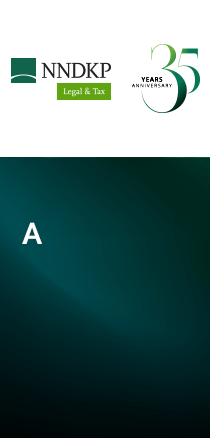
Cybersecurity: Romania transposes the NIS2 Directive. What’s next?
14 Februarie 2025 Kinstellar
On 31 December 2024, the Romanian government passed Government Emergency Ordinance no. 155/2024 (GEO 155/2024) transposing NIS2 into national legislation.

|
Directive (EU) 2022/2555 (NIS2) aims to further strengthen the cyber resilience of the EU by requiring entities in various sectors to dial up their cybersecurity efforts. NIS2 replaces the former NIS1 Directive (EU) 2016/1148, expands the range of entities falling under its provisions, and introduces stricter requirements for these entities.
On 31 December 2024, the Romanian government passed Government Emergency Ordinance no. 155/2024 (GEO 155/2024) transposing NIS2 into national legislation.
Whom does it concern?
NIS2 and GEO 155/2024 target entities across various industry sectors and categorises them into essential and important entities. Entities active in the following areas should check whether NIS2 and GEO 155/2024 apply to them:
On 31 December 2024, the Romanian government passed Government Emergency Ordinance no. 155/2024 (GEO 155/2024) transposing NIS2 into national legislation.
Whom does it concern?
NIS2 and GEO 155/2024 target entities across various industry sectors and categorises them into essential and important entities. Entities active in the following areas should check whether NIS2 and GEO 155/2024 apply to them:
(i) essential entities: energy (electricity, district heating and cooling, oil, gas, hydrogen); transport (air, rail, water, road); banking; financial market infrastructures; health; drinking water; wastewater; and public administration and space. Even stricter obligations apply to digital infrastructure and ICT service management;
(ii) important entities: postal and courier services; waste management; manufacture, production and distribution of chemicals; production, processing and distribution of food; manufacturing of medical devices; computer, electronic and optical products; electrical equipment; machinery and equipment; motor vehicles, trailers and semi-trailers and other transport equipment; digital providers of online marketplaces, search engines, and social networking.
Even though size thresholds are in place (NIS2 and GEO 155/2024 apply mainly to medium and large enterprises), an entity falling under these thresholds can still be subject to these legal provisions due to its critical role in a specific sector. Some obligations extend to suppliers of such entities, as NIS2 also aims to raise the cyber preparedness of supply chains.
What must be done?
If an entity has determined that it falls under NIS2 and GEO 155/2024, it must comply with all obligations and requirements laid down in this legislation for the respective type of entity.
GEO 155/2024 outlines several obligations for the entities subject to its provisions, including, but not limited to, the following:
→ Implement appropriate and proportional technical, operational, and organisational measures to manage security risks and minimise the impact of incidents on information systems, adhering also to sector-specific requirements;
→ Register with the Romanian National Cybersecurity Directorate (“DNSC”), the authority responsible for enforcing GEO 155/2024 provisions;
→ Conduct audits at regular intervals and communicate their results to the DNSC;
→ Ensure management undergoes cybersecurity training and that the individual responsible for cybersecurity decisions operates independently from the operational Head of IT;
→ In the event of a cybersecurity incident, notify authorities within six and 24 hours, and—depending on the circumstances—inform affected individuals or contractual partners when necessary.
Sanctions
GEO 155/2024 establishes a framework of multiple obligations in which each breach of an individual type of obligation is sanctioned with a fine (e.g., failure to register with the DNSC, not performing the required audits, or not communicating their results to the DNSC). Fines can reach up to EUR 10 million or 2% of annual worldwide turnover, whichever is higher, for essential entities, and EUR 7 million or 1.4% of annual worldwide turnover, whichever is higher, for important entities.
In addition, NIS2 and GEO 155/2024 legislate the personal liability of individuals from management for non-compliance.
Next step?
GEO 155/2024 established a deadline for registering with the DNSC that elapsed on 30 January 2025. However, at present, the DNSC has not yet issued the application norms required to perform the registration of essential and important entities.
According to a press release available on the DNSC website, registrations will be performed based on the application norms that the DNSC commits to issue in Q1 2025. After the necessary application norms will be issued, relevant entities will have to register with the DNSC in the prescribed manner and deadlines.
As non-observance of regulatory cybersecurity obligations could lead not only to fines for both the company and management, but also to damage claims from contractual partners (if the latter suffer losses following an incident that could have been prevented or mitigated if the prescribed measures would have been in place), relevant entities should take the necessary actions to comply with these legal requirements as soon as possible.
| Publicitate pe BizLawyer? |
  |
| Articol 23 / 4453 | Următorul articol |
| Publicitate pe BizLawyer? |
 |

BREAKING NEWS
ESENTIAL
Bondoc și Asociații a anulat un Proces-verbal de sancționare emis în materia RO e-Transport. Ce avocați au fost în echipa de proiect
Trei avocați români de la Bondoc & Asociații, Filip & Company și DLA Piper sunt considerați ‘Eminent Practitioners’ în practica de fuziuni și achiziții. Clasamentul Chambers Europe 2025, cu cei mai buni avocați de Corporate ̸ M&A din România
Cei mai buni litigatori din România, văzuți de Chambers Europe 2025 | Cine sunt practicienii apreciați de clienți în practica de Dispute Resolution și ce spun clienții despre aceștia. Nouă avocați români sunt evidențiați în practica de arbitraj
Women Lawyers | Să fii femeie în lumea avocaturii înseamnă provocare, determinare, perseverență și o mare dorință de echilibru între viața personală și cea profesională. Irina Corcoveanu, Partener WHSimion & Partners: ”Poate că femeile au nativ o înclinație mai mare către o abordare mai empatică și o diversitate de perspective, însă aceste calități le pot manifesta în egală măsură și bărbații avocați. Diferența ar putea să fie mai degrabă de la o persoană la alta, decât de la un gen la altul”
KPMG Legal – Toncescu și Asociații, alături de cumpărător în tranzacția prin care Advanzia Education a preluat SDA Academy Romania. Laura Toncescu (Head of KPMG Legal) și Dragoș Iamandoiu (Partner), în prim plan
Women Lawyers | Doamnele au roluri principale și instrumentează proiecte majore la PNSA, firmă în care membrele echipei au un profil profesional bine conturat. Camelia Pătrașcu, Partener: ”Am ocazia de a profesa într-un mediu competitiv, alături de avocați de excepție. În fiecare zi descopăr ceva nou și apreciez deschiderea mea către învățare și inspirația pe care o găsesc în cei din jur”
Kinstellar asistă grupul de investiții private EMMA Capital în achiziția strategică a companiei Diamedix în România, Moldova, Bulgaria și Ucraina. Echipa pluridisciplinară din București, coordonată de Zsuzsa Csiki (Partener)
Practica de Litigii a Clifford Chance Badea obține o soluție favorabilă într-o speță transnațională vizând protecția terților de bună-credință afectați de o măsură de sechestru penal. Vicu Buzac (Senior Associate) a condus echipa din București
Women Lawyers | O femeie avocat poate aduce o perspectivă diferită, având în vedere diversitatea abilităților, precum atenția la detalii, capacitatea de a media conflicte și de a construi relații de încredere. Ana Maria Abrudan (Partener Mușat & Asociații): ”Un avocat de succes, indiferent de gen, este cel care aduce soluții inovatoare, construiește relații de încredere cu clienții și își dezvoltă constant aria de expertiză, având totodată abilitatea de a împărtăși aceste cunoștințe cu noile generații de avocați”
Women Lawyers | Ce spun și cum gândesc doamnele din structura Țuca Zbârcea & Asociații, firmă care etalează femei avocat remarcabile pe toate palierele de activitate. Azi, de vorbă cu Oana Mareș, Managing Associate: ”Femeile au adesea un grad mai mare de răbdare în gestionarea relației cu clienții, aspect esențial în momentele de stres sau incertitudine. Într-un domeniu unde detaliile contează enorm, abilitatea de a observa inclusiv nuanțele emoționale și de a reacționa corespunzător poate reprezenta un atu valoros”
NNDKP aniversează 35 de ani de activitate | Firma fondată de Manuela și Ion Nestor demarează un proces strategic de remodelare a structurii sale de management: Adina Chilim-Dumitriu și Emil Bivolaru devin Parteneri Executivi, domeniile esențiale pentru buna funcționare a firmei vor fi gestionate prin intermediul unor Comitete ale Partenerilor
Studiul CMS European M&A 2025: Romania - locul 2 în CEE, cu o creștere de 80% | Horea Popescu (Managing Partner - CMS România): “Numărul de tranzacții în care CMS a oferit consultanță în regiune a crescut cu peste 30% față de 2023, fiind al doilea cel mai mare număr de tranzacții înregistrat din 2014 și până acum”. Rodica Manea (Partener): “În perspectivă, este important ca achizitorii să rămână agili și să păstreze un echilibru între încrederea într-o piață în continuă evoluție și provocările de reglementare”
Citeste pe SeeNews Digital Network
-
BizBanker
-
BizLeader
- in curand...
-
SeeNews
in curand...











 RSS
RSS














































